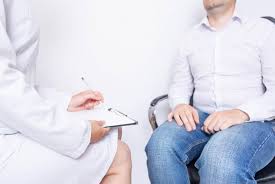INTRODUCTION
Your kidneys perform the function of removing waste and fluid from your body and excreting them out in the form of urine. However, in a situation when there is excess waste and inadequate fluid in your body, the waste starts building up and sticking to your kidneys. Such waste then takes the form of kidney stones and requires appropriate kidney stone treatment for its management.
Kidney stones can be of different sizes and may or may not be painful.
CAUSES & RISK FACTORS FOR KIDNEY STONES
Kidney stones are common, and anyone can get them. Statistically, men are more likely to get kidney stones than women. Your chances of having a kidney stone increase in the following situations:
- History of kidney stones– If you previously had kidney stones, you become naturally susceptible to developing them again. Other kidney diseases such as cystic kidney diseases can be responsible factors too. A family history of kidney stones is an important factor responsible for having kidney stones in the next generation.
- Genetically predisposed- If your bloodline has cases of kidney stones, you also become vulnerable to it.
- Dehydration- Drinking a lot of water is essential for the proper functioning of the body. Fluids are the carriers in the human body, and lack of water can cause severe problems like kidney stones.
- Imbalanced Diet- A diet with a high amount of protein, sodium(salt), or sugar creates an imbalance in the body, leading to kidney stones. Other imbalances in minerals, such as calcium, have the same effect.
- Obesity– Being overweight slows down the internal system. Our organs are strained to function normally, and the kidney is one of these organs. If it is slowed down, it can cause a kidney stone.
- Major Surgery– A major intestinal surgery such as gastric bypass surgery makes your body less resistant to kidney stones.
KIDNEY STONE SYMPTOMS
Small kidney stones are undetectable as they move through the urinary tract without causing noticeable pain or discomfort, but the symptoms are evident when they grow in size. Can kidney stones cause back pain, You can check the answer to this question by reading blogs available here.
Some of the more severe symptoms are:
- Pain during urination
- Blood in urine
- Shooting pain in your lower back or abdomen
- Nausea
It is essential to contact your physician or visit a hospital if you’ve any of the above symptoms to get appropriate kidney stone treatment in time.
KIDNEY STONE TREATMENT
A typical kidney stone treatment depends on the stone size, its placement, what it is made of, causing any pain, and whether it is blocking the urinary tract. Proper diagnosis involves urinary tests, blood tests, X-rays, and CT scans.
If your kidney stone is too small, the doctor will send you home with the pain medication and advise you to drink plenty of fluids to help it push out of your urinary tract on its own. However, if the kidney stone is large and is causing your urinary passage to block, you may require additional kidney stone treatment or may need to visit any best urologist in Mumbai.
There are main types of treatments:
- Shock Wave Lithotripsy – In this treatment, the stone is attacked by shock waves to disintegrate into smaller pieces which eventually are flushed out of the body with the urine. It is a minor procedure that takes up to 45 minutes under general anesthesia. The patient doesn’t feel any pain in this procedure because of the anesthesia and is sent home in two days.
- Ureteroscopy– In this treatment, the doctor inserts a tube and finds the stone in the kidney. If the stone is small, it is removed. However, if the stone is too large to be removed, it is broken into smaller pieces with the help of the laser. The broken stone pieces then flush out of the body with urine.
With the correct information available, one can prevent having kidney stones. The right approach to kidney stone treatment starts from its timely detection.

